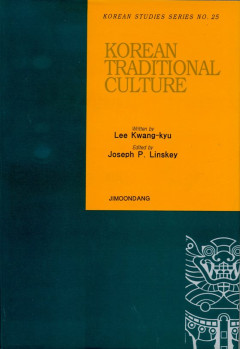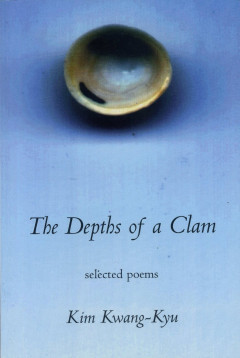Ditapis dengan

Korean Traditional Culture
This book is a general picture of the Korean Society and traditional culture in an anthropological aspect. As a general introduction to Korean culture, it includes geographical setting of Korean peninsula, historical development of Korean societies from pre-history until modern period, and social customs of Korean people. In the anthropological aspect, the author studies the family and kinsh…
- Edisi
- -
- ISBN/ISSN
- 89-88095-49-9
- Deskripsi Fisik
- viii, 369 p. : ill. ; 23 cm.
- Judul Seri
- (Korean Studies No. 25)
- No. Panggil
- -

Republic of China Yearbook 1990-91
- Edisi
- -
- ISBN/ISSN
- 957-9227-28-4
- Deskripsi Fisik
- xxi, 818 hlm. : il. ; 30 cm
- Judul Seri
- -
- No. Panggil
- 951.249 05 REP
- Edisi
- -
- ISBN/ISSN
- 957-9227-28-4
- Deskripsi Fisik
- xxi, 818 hlm. : il. ; 30 cm
- Judul Seri
- -
- No. Panggil
- 951.249 05 REP

The Depths of a Clam: Selected Poems
Kim Kwang-Kyu wrote in a simple vocabulary with grammatically coherent language that included a humor that had not been present in contemporary Korean literature. He demonstrated that it was possible to write about social issues while remaining deeply personal, a concept that has had a profound influence on younger poets. The reader who comes to these poems is thus being invited to wake up from…
- Edisi
- -
- ISBN/ISSN
- 1-893996-43-3
- Deskripsi Fisik
- 160 p. ; 23 cm.
- Judul Seri
- (Korean Voices Series, Volume 9)
- No. Panggil
- 808.81 KIM d
 Karya Umum
Karya Umum  Filsafat
Filsafat  Agama
Agama  Ilmu-ilmu Sosial
Ilmu-ilmu Sosial  Bahasa
Bahasa  Ilmu-ilmu Murni
Ilmu-ilmu Murni  Ilmu-ilmu Terapan
Ilmu-ilmu Terapan  Kesenian, Hiburan, dan Olahraga
Kesenian, Hiburan, dan Olahraga  Kesusastraan
Kesusastraan  Geografi dan Sejarah
Geografi dan Sejarah